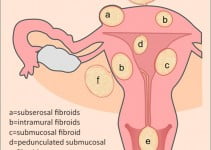Hepatitis C is a contagious, infectious virus that usually exists as a chronic illness and can lead to serious medical conditions if not watched carefully. The hepatitis C virus can cause serious liver infection, which can in turn result in cirrhosis (scarring of the liver) and liver cancer.
Hepatitis C is considered one of the primary causes of liver failure among its patients. The virus is typically spread from person to person through blood contact, but it can also be spread through sexual activity, although it is not as likely.
People who use intravenous drugs can also have hepatitis C transmitted to them if they share the needles with someone who is already infected with the virus. Around 10% of cases are due to an unknown mode of transmission [1][2].

Some of the symptoms of hepatitis C can vary. Many people who contract hepatitis C often don’t feel the effects of their symptoms until the virus has been present in their body for a while, and they can begin to exhibit flu-like symptoms from two weeks to six months after the first contract the virus.
Symptoms associated with the virus can range from fatigue, achiness, nausea, lack of appetite, liver tenderness, and then accelerate to symptoms of liver failure as the disease progresses.
For some people with the virus, it may go away on its own within the first six months, and for others, it can be a chronic problem.
Women are typically affected differently by hepatitis C than men due to the presence of their menstruation cycles, which can affect the way their bodies respond to treatments.
Women who have been infected with hepatitis C can also experience an effect on their reproductive and sexual health as a result, often needing to take extra precaution during their cycles.
Effects on the menstrual cycle
While most women’s periods do not change significantly because of hepatitis C, some women may experience shorter or missed periods as a result. This may be especially prevalent in women who experience advanced liver damage due to the virus.
Some women can also experience irregular menstrual cycles during their treatment of hepatitis C, which can range from heavier to lighter periods, shorter to longer cycles, as well as differences in PMS symptoms.
Since the liver is a vital organ for the function of the menstrual cycle and balancing estrogen hormones, damage to the liver can significantly affect a woman’s menstruation cycle.
Liver damage as a result of hepatitis C can cause irregular and missed periods for an extended amount of time.
Possibility of menstruation transmission
Since menstrual fluid contains blood, there is a possibility of hepatitis C being transmitted through menstrual blood.
Since hepatitis C is mainly transmitted through blood to blood contact, there is a theory that hepatitis C is more likely to be transmitted through sexual contact if a woman is on her menstrual cycle at the time due to the presence of menstrual blood [3], especially if their partner has any open cuts or wounds that can be exposed to the blood.
Using preservatives during intercourse can reduce the risk of blood to blood contact as well as hepatitis C transmission.
The best way to ensure that hepatitis C is not transmitted between partners is to take standard precautions, such as using preservatives, disposing of used tampons and pads properly, and exercising caution when menstruating during intercourse.
Menopausal effects
Women who are nearing menopause may also experience changes if they have hepatitis C. Some women report differences in menopausal symptoms, such as hot flashes and irregular bleeding and spotting. Hepatitis C treatments can also induce menopause in premenopausal women.
Women taking regular treatments may experience missed periods that never return, therefore inducing menopause [4][5]. In women who have chronic hepatitis C, the event of menopause can accelerate the progression of the liver fibrosis.
Post-menopause women may need to consult a doctor before resorting to hormone replacements.
Reproductive contraceptives and hepatitis C
Women with severe liver damage as a result of hepatitis C may not be able to break down the hormones produced by the oral contraceptive pill or hormone replacement therapy, since the liver may not be functioning properly enough to absorb and break down these hormones.[6]
Effects of Ribavirin
Ribavirin is a hepatitis C medication commonly used in combination with other treatments. One of the side effects of ribavirin, though, is anemia, which is more likely to be developed by women because they lose blood each month through their menstruation cycles.
Women who are menstruating while on ribavirin should make sure they are having their blood cell levels monitored regularly by their doctor to watch for anemia.
Hepatitis C can be cured. There are a number of treatments women can have to treat their condition, depending on the extent of liver damage and what type of hepatitis C they have.
The medicines typically prescribed to treat hepatitis C can have unpleasant side effects and sometimes don’t work for everyone.
Most people diagnosed with chronic hepatitis C are treated by a combination of antiviral medications that work to fight the infection and prevent damaging liver problems.
While taking these medications, women should be aware of their symptoms and menstrual cycles as an indicator of how their body is reacting.
References
- https://www.ncbi.nlm.nih.gov/pubmed/9576454
- https://www.hepatitis.va.gov/hcv/background/transmission-modes.asp#note12
- https://www.ncbi.nlm.nih.gov/pubmed/8053434
- https://www.hepmag.com/article/women-hepatitis-c-may-hasten-menopause-reduce-fertility
- https://www.ncbi.nlm.nih.gov/pubmed/19002016
- https://livertox.nih.gov/Estrogens.htm



